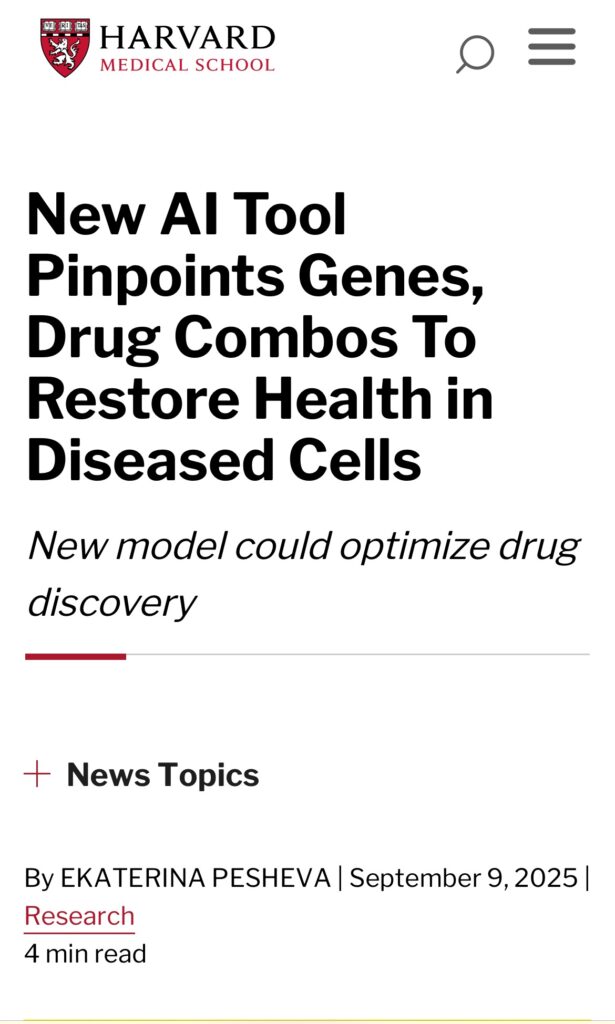
A New Era in Precision Medicine
Researchers at Harvard Medical School have unveiled a groundbreaking artificial intelligence tool called PDGrapher. This system goes far beyond traditional trial-and-error methods: it can pinpoint the genes responsible for cellular dysfunction and predict which drug combinations might bring diseased cells back to health.
This innovation represents a decisive step toward precision medicine, where treatment is tailored to the molecular and genetic profile of each patient.
How Does PDGrapher Work?
The tool is built on advanced computational models that:
Identify key disease-driving genes inside cells. Simulate drug interactions before they are tested in real life. Predict therapeutic outcomes with impressive accuracy.
Instead of clinicians and researchers spending years testing multiple drug combinations in the lab, PDGrapher calculates potential solutions in advance — saving time, costs, and resources.
Clinical Implications
For clinicians and neuroscientists, the relevance of this tool is immense:
🧠 Neurological Disorders: Many brain conditions are caused or influenced by gene dysfunction. Targeted therapy could change the prognosis for conditions once considered untreatable. 💊 Personalized Therapies: No more one-size-fits-all medicine. Patients could receive treatments adapted to their unique genetic profiles. ⏱️ Faster Translation from Research to Clinic: What once took decades might soon take years, or even months.
Why Is This Different from Traditional Medicine?
Conventional medicine often relies on broad-spectrum drugs and lengthy clinical trials. The process is crucial, but it is slow and costly. PDGrapher’s ability to simulate gene-drug interactions in silico (inside computers) dramatically accelerates the path from genetic discovery → drug testing → patient treatment.
This does not replace clinical validation, but it provides a much sharper and safer starting point.
A Step Toward the Future of Healthcare
The idea of restoring a diseased cell back to a healthy state was once science fiction. Today, thanks to AI, it is a scientific possibility. For neuroscience, oncology, cardiology, and beyond, this tool may become a foundation for next-generation therapies.
Source
📚 Read the official Harvard Medical School report here:
👉 New AI tool pinpoints genes and drug combos to restore health to diseased cells
Final Thought
The integration of AI, genetics, and clinical practice is reshaping the future of medicine.
The question is not if these tools will enter our daily clinical routine, but when.
💬 What do you think? Would you trust an AI to help define treatment for complex diseases?
👉 This format is “respondible” (gera engajamento porque termina com uma pergunta para o leitor comentar).
